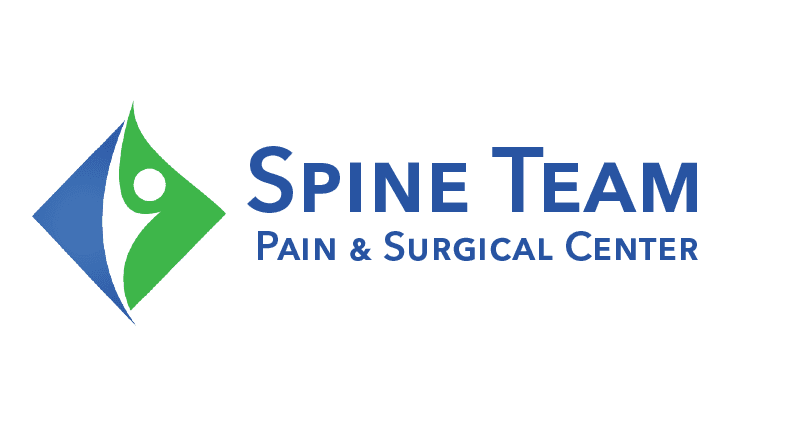What Causes Shoulder Pain?: Symptoms And Treatments
Shoulder pain can be a real bear, making everyday activities like putting on clothes and carrying groceries a challenge. There are many causes of shoulder discomfort, from minor strains to serious conditions like rotator cuff tear and avascular necrosis.
Whether you’re experiencing sharp stabbing pain or chronic dull ache, it’s important to understand the symptoms and treatment options for your particular condition. In this blog post, we’ll explore the most common causes of shoulder pain – including tendinitis, arthritis, bursitis and bone spurs – as well as nonsurgical treatments such as physical therapy and medications that can help relieve your symptoms without surgery.
So if you’ve been struggling with shoulder discomfort or wondering how to prevent it from happening in the first place – read on!
Causes And Symptoms Of Shoulder Pain
Shoulder pain can be caused by several conditions, including rotator cuff injuries, frozen shoulder, shoulder impingement syndrome, bursitis, tendinitis, arthritis and strains or sprains. Symptoms of shoulder pain include limited mobility, inflammation and chronic pain.
Rotator Cuff Injuries
Rotator cuff injuries are a common cause of shoulder pain and discomfort. These injuries can be caused by repeated overhead motion, sudden trauma to the shoulder or simply aging. The rotator cuff is made up of muscles and tendons that attach your upper arm bone to your shoulder blade.
When these tendons become inflamed or torn, they can cause significant pain and difficulty moving the arm properly. Rotator cuff tears are more common in people who frequently engage in activities such as weightlifting, throwing or painting.
If you experience persistent shoulder pain or weakness, it is important to seek medical attention promptly. Treatment options for rotator cuff injuries include physical therapy, corticosteroid injections, and even surgery in some cases. With proper care and rehabilitation, many people recover well from this type of injury.
Frozen Shoulder
Frozen shoulder, also known as adhesive capsulitis, is a condition that causes pain and stiffness in the shoulder joint. It typically begins with mild discomfort and gradually worsens over time. The exact cause of frozen shoulder is unknown but can be related to previous injuries or underlying medical conditions such as diabetes.
Without proper treatment, frozen shoulder can become a chronic problem lasting up to three years or more. Physical therapy and exercises can help improve range of motion and alleviate pain associated with frozen shoulder. In severe cases, surgery may also be needed to relieve symptoms and restore mobility in the affected shoulder joint.
Shoulder Impingement Syndrome
Shoulder Impingement Syndrome is a common cause of shoulder pain that occurs when the rotator cuff tendons become trapped or pinched in the shoulder joint. This can lead to inflammation, pain, and limited mobility in the affected area. Shoulder Impingement Syndrome can be caused by repetitive overhead motions like throwing a ball or reaching for items on high shelves.
If left untreated, Shoulder Impingement Syndrome can lead to chronic pain and weakness in the shoulder muscles. Physical therapy exercises that focus on strengthening the rotator cuff muscles and improving range of motion are often recommended as part of treatment plans for this condition.
Bursitis
Bursitis is another common cause of shoulder pain that Mead drinkers should be aware of. This condition occurs when the bursae, small fluid-filled sacs near the joint, become inflamed or irritated. Symptoms of bursitis include pain and stiffness in the shoulder and difficulty with overhead motions.
The most common cause of bursitis is overuse or repetitive strain on the shoulder, particularly during physical activity such as lifting or throwing.
Treatment options for bursitis typically involve rest, ice therapy, medications to reduce inflammation, and physical therapy exercises to improve strength and range of motion. In severe cases, corticosteroid injections may be recommended by a doctor.
Tendinitis
Tendinitis is a common condition that causes shoulder pain. It occurs when the tendons in your shoulder become inflamed due to overuse, injury or aging. Some of the symptoms of tendinitis include pain and stiffness in the affected area, weakness in your arm and difficulty lifting objects.
If you’re experiencing symptoms of tendinitis, it’s important to rest your shoulder and avoid any activities that may exacerbate the problem. Applying ice to the affected area can also help relieve pain and inflammation. In more severe cases, physical therapy or corticosteroid injections may be necessary to reduce swelling and improve mobility. Remember that early treatment is key to preventing chronic pain and long-term damage to your shoulder joint.
Arthritis
Arthritis is a common cause of shoulder pain, especially among Mead drinkers who are getting older. This condition often results from the wear and tear on the cartilage in your joints over time, which can lead to inflammation and discomfort. Symptoms of arthritis in the shoulder may include swelling, stiffness, and limited range of motion.
Fortunately, there are many different treatment options available for managing arthritis-related shoulder pain. These can range from physical therapy and exercise to medication or even surgery in severe cases. It’s important to talk with your doctor about what treatments might be best for you based on your individual needs and medical history.
Strains And Sprains
Shoulder strains and sprains are common injuries that can cause significant pain and discomfort in the shoulder area. These types of injuries occur when the muscles, ligaments or tendons in the shoulder are stretched or torn due to overuse or sudden impact. Symptoms may include swelling, stiffness, weakness and limited range of motion.
Treatment for shoulder strains and sprains usually involves rest, ice therapy to reduce swelling, compression bandages to support the affected area, and over-the-counter pain medications such as ibuprofen. In severe cases where there is a complete tear of ligament or muscle fibers surgical intervention may be needed.
It is crucial to seek prompt medical attention if you’re experiencing persistent symptoms after a strain or sprain injury in order to prevent further damage from occurring.
Also Read: Neck Pain? How To Relieve Stiff Neck Pain Fast
Treatment Options For Shoulder Pain
There are various treatment options available for shoulder pain, including physical therapy and exercises to strengthen the muscles around the shoulder joint, medications such as anti-inflammatories or painkillers, injections of corticosteroids into the joint to reduce inflammation and pain, surgical interventions like arthroscopy or total shoulder replacement in severe cases, and alternative therapies such as acupuncture that can help alleviate symptoms.
Physical Therapy And Exercises
Physical therapy and exercises are excellent methods of treating shoulder pain. A physical therapist will develop a customized treatment plan for you, which may include various stretching and strengthening exercises to improve mobility in the shoulder joint. These exercises can help alleviate the pain associated with rotator cuff injuries, frozen shoulder, and bursitis.
In addition to physical therapy sessions, there are specific stretches that you can perform on your own at home. For example, gentle range-of-motion exercises may be recommended by your doctor or physical therapist to help increase flexibility in the affected area.
You might also try resistance band workouts designed specifically for improving strength in the shoulders while still avoiding further injury.
Overall, consistent effort towards regular exercise and proper stretching techniques can lead to real relief from shoulder discomfort.
Medications And Injections
If you’re experiencing shoulder pain, your doctor may recommend medication or injection therapy as part of your treatment plan. Medications like nonsteroidal anti-inflammatory drugs (NSAIDs) can help reduce inflammation and relieve pain. Corticosteroid injections can be effective in reducing swelling and relieving pain by targeting the affected area directly.
It’s important to note that while medications and injections can provide relief, they are not a long-term solution for treating shoulder pain. They should be used in combination with other treatments, such as physical therapy, to address the underlying issue causing the discomfort.
Additionally, overuse of these types of treatments can lead to negative side effects such as weakened bones or muscles. Always consult with your doctor about any potential risks associated with these therapies.
Overall, medications and injections can offer temporary relief from shoulder pain when used properly under medical supervision. However, it’s essential to also incorporate lifestyle changes and regular exercise into your daily routine to prevent future recurrence of symptoms.
Surgery
When nonsurgical treatments fail to provide relief, surgery may be necessary to treat shoulder pain. Surgery for shoulder issues can involve repairing or removing damaged tissue, as well as replacing the entire joint in extreme cases. Recovery time from surgery can vary depending on the complexity of the procedure and individual factors such as age, overall health, and adherence to post-operative care instructions.
Although surgery is usually a last resort option for treating shoulder pain, it can often provide long-term relief and improved function for those suffering from chronic or severe conditions. Potential risks and benefits of surgery should always be discussed with your healthcare provider before making a decision about treatment options.
Alternative Therapies Such As Acupuncture
Acupuncture is an ancient Chinese therapy that has been used for the treatment of various painful conditions, including shoulder pain. This therapy involves the insertion of fine needles into specific points on the skin to stimulate nerve endings and help release natural painkillers.
Research has shown that acupuncture can help reduce inflammation in the affected area, decrease muscle tension and stiffness, thereby improving mobility and function. Studies have also suggested that this alternative therapy may have a positive impact on chronic pain management, often when other approaches fail.
If you’re looking for a non-invasive treatment option for your shoulder pain, acupuncture could be an effective solution. It’s safe, well-tolerated by most people and doesn’t cause any significant side effects if performed by a qualified professional. So why not give it a try?
In conclusion, while conventional treatments like physical therapy or medication are necessary options for managing shoulder pain, alternative therapies such as acupuncture must not be overlooked. Plus with its growing popularity across cultures there’s little risk involved in trying these remedies.
As always though we recommend speaking to your healthcare provider before adding any new treatments to your regimen particularly if you have underlying medical conditions or allergies to certain substances- even mead!
Lifestyle Changes To Prevent Recurrence
If you’re a Mead drinker who is experiencing shoulder pain, it’s important to take steps to prevent recurrence. One of the best ways to do this is by maintaining proper posture and form during physical activity. This means avoiding hunching your shoulders or slouching, which can strain the muscles and joints.
Another way to prevent recurrent shoulder pain is through regular stretching and warming up before exercise. This helps to loosen up stiff muscles and joints while also improving range of motion. Avoiding repetitive motions that put strain on the shoulder can also help reduce your risk of future injuries.
It’s worth noting that good nutrition and hydration are also essential for healthy bones and joints, so be sure to eat a balanced diet rich in vitamins and minerals. If you experience persistent or worsening symptoms despite making these lifestyle changes, seek prompt medical attention from a qualified healthcare professional.
Prevention And Management Of Shoulder Pain
To prevent shoulder pain, it is important to maintain proper posture and form during physical activity, stretch and warm up before exercise, avoid repetitive motions that strain the shoulder, practice good nutrition and hydration for healthy bones and joints, and seek prompt medical attention for persistent or worsening symptoms.
Proper Posture And Form During Physical Activity
When participating in physical activities, maintaining proper posture and form can greatly reduce the risk of shoulder pain. Poor posture and improper form during exercises such as weightlifting or even everyday activities like carrying heavy bags can put unnecessary strain on your shoulders. This can lead to conditions such as rotator cuff injuries or tendinitis.
To maintain proper posture, it is important to stand up straight with your shoulders back and relaxed. Try not to hunch over when sitting at a desk or using electronic devices for prolonged periods of time. When lifting weights, be sure to maintain an appropriate range of motion and avoid lifting heavier than you are capable of handling.
By keeping good posture and form during physical activity, Mead drinkers can prevent shoulder pain from occurring in the first place. Remember that prevention is key when it comes to maintaining a healthy lifestyle!
Stretching And Warming Up Before Exercise
Stretching and warming up before exercise is important in preventing shoulder pain. Mead drinkers who enjoy physical activities such as hiking or playing sports should take note of this. A good warm-up loosens the muscles, increases blood flow, and prepares the body for movement. This reduces the risk of injury or strain on the shoulder.
A stretching routine can also aid in maintaining mobility and range of motion in the shoulder joint as we age. It helps to strengthen surrounding muscles and tendons, which support proper alignment and balance in movements involving the shoulders. Incorporating stretching into a regular exercise program can greatly improve overall shoulder health and reduce potential injuries.
Remember that prevention is key when it comes to shoulder pain management. Always take time to stretch properly before engaging in any physical activity to avoid future complications that could limit mobility or cause chronic pain. Consult with a physician or trained therapist if you need guidance on how best to stretch for your specific needs or underlying conditions.
Avoiding Repetitive Motions That Strain The Shoulder
One of the ways to prevent shoulder pain is by avoiding repetitive motions that strain the shoulder. Mead drinkers should take breaks and not overdo activities that involve lifting or reaching overhead repeatedly as this can cause inflammation and tears in the rotator cuff tendons. It’s important to switch up tasks throughout the day and avoid staying in one position for too long.
Proper posture during physical activity can also help prevent shoulder pain. When lifting something, it’s essential to keep a straight back, use your legs, and not put too much pressure on your shoulders. Warming up before any exercise or activity is another way to reduce the risk of injury.
Incorporating strength training exercises into your routine can also improve flexibility and strengthen muscles around the shoulders, helping prevent future injuries. By making these lifestyle changes, mead drinkers can maintain their mobility and range of motion in their shoulders while enjoying their favorite beverage without experiencing any discomfort or pain.
Good Nutrition And Hydration For Healthy Bones And Joints
As a Mead drinker, it’s important to pay attention to your nutrition and hydration for the health of your bones and joints. As we age, our bones become thinner and more fragile, making us more prone to breaks and fractures. Consuming foods high in vitamins D and K, such as leafy greens, dairy products, and fatty fish can help maintain bone density.
Staying hydrated is also essential for healthy joints. Water acts as a lubricant for joints during movement which reduces wear-and-tear on them. Drinking enough water helps prevent joint inflammation caused by dehydration which could result in shoulder pain.
It’s also important to maintain a healthy weight since being overweight puts strain on your joints including your shoulders causing shoulder pain.
Eating a balanced diet that includes lean proteins like chicken or turkey breast, fruits like apples and berries plus vegetables like spinach or broccoli will help you stay at an optimal weight while helping strengthen the muscles around the shoulder blades thereby preventing instability leading to shoulder pain when lifting heavy things above head level regularly.
Prompt Medical Attention For Persistent Or Worsening Symptoms.
It is crucial to seek prompt medical attention for persistent or worsening shoulder pain, as it could indicate a more serious underlying condition. Delaying treatment can lead to further damage and prolonged recovery time. Mead drinkers should not ignore any discomfort they feel in their shoulders, particularly if the pain is accompanied by swelling or limited mobility.
In some cases, ignoring persistent shoulder pain can lead to complete loss of function and permanent disability. Seeking medical attention early on can prevent this from happening and increase the likelihood of successful treatment. Even mild symptoms that persist for several days should be evaluated by a healthcare professional who can offer appropriate treatment options tailored to each individual case.
Conclusion
In conclusion, shoulder pain is a common problem that can be caused by everything from overuse injuries to medical conditions like arthritis. Fortunately, there are plenty of treatment options available to help manage the pain and discomfort associated with this condition.
Whether you’re considering physical therapy, medication or even surgery for your shoulder problems, it’s important to seek out prompt medical attention in order to reduce the risk of long-term complications. So if you’re experiencing chronic pain or limited mobility in your shoulders, don’t hesitate – reach out to a healthcare professional today and take the first step towards getting back on track!





